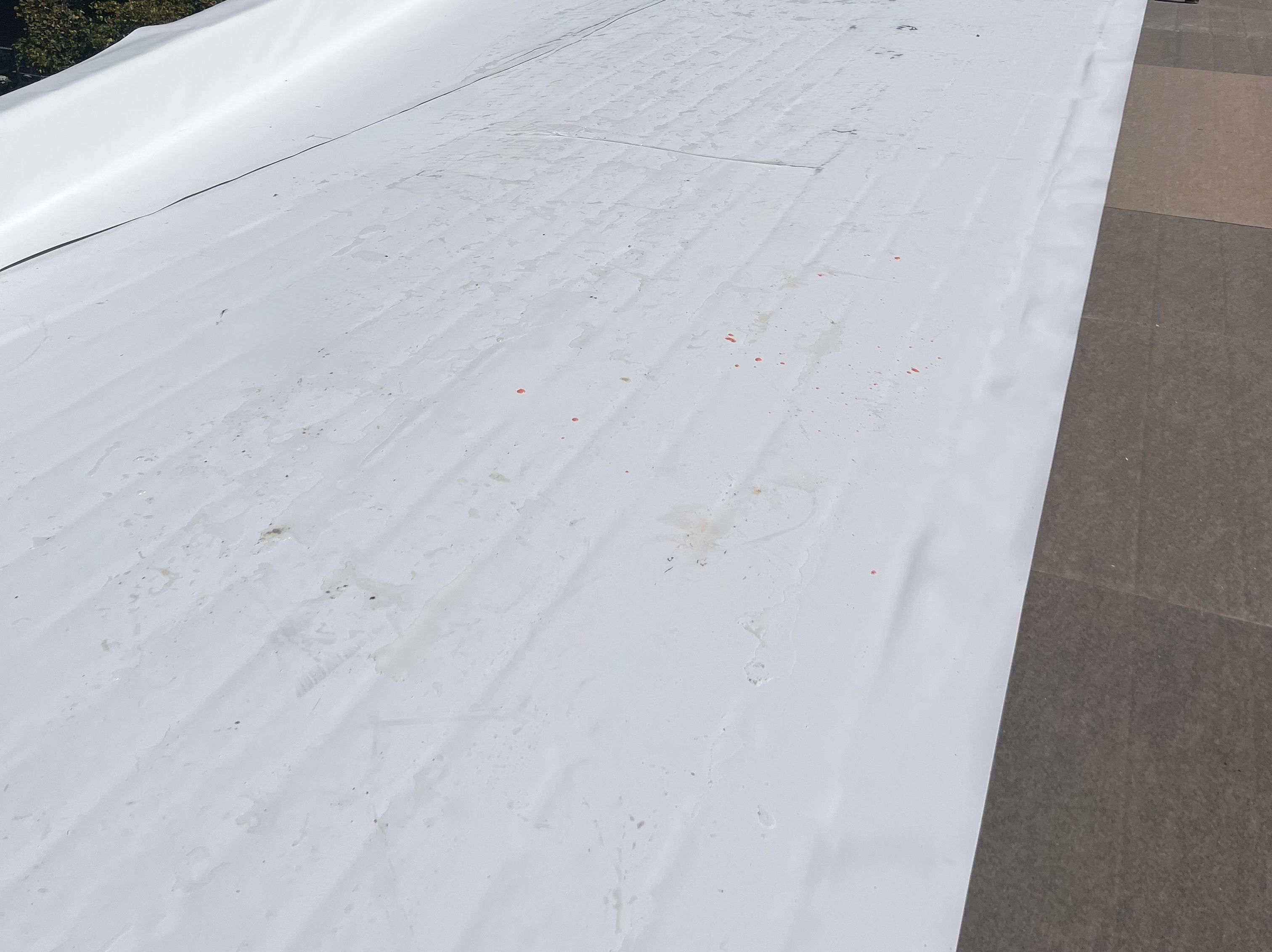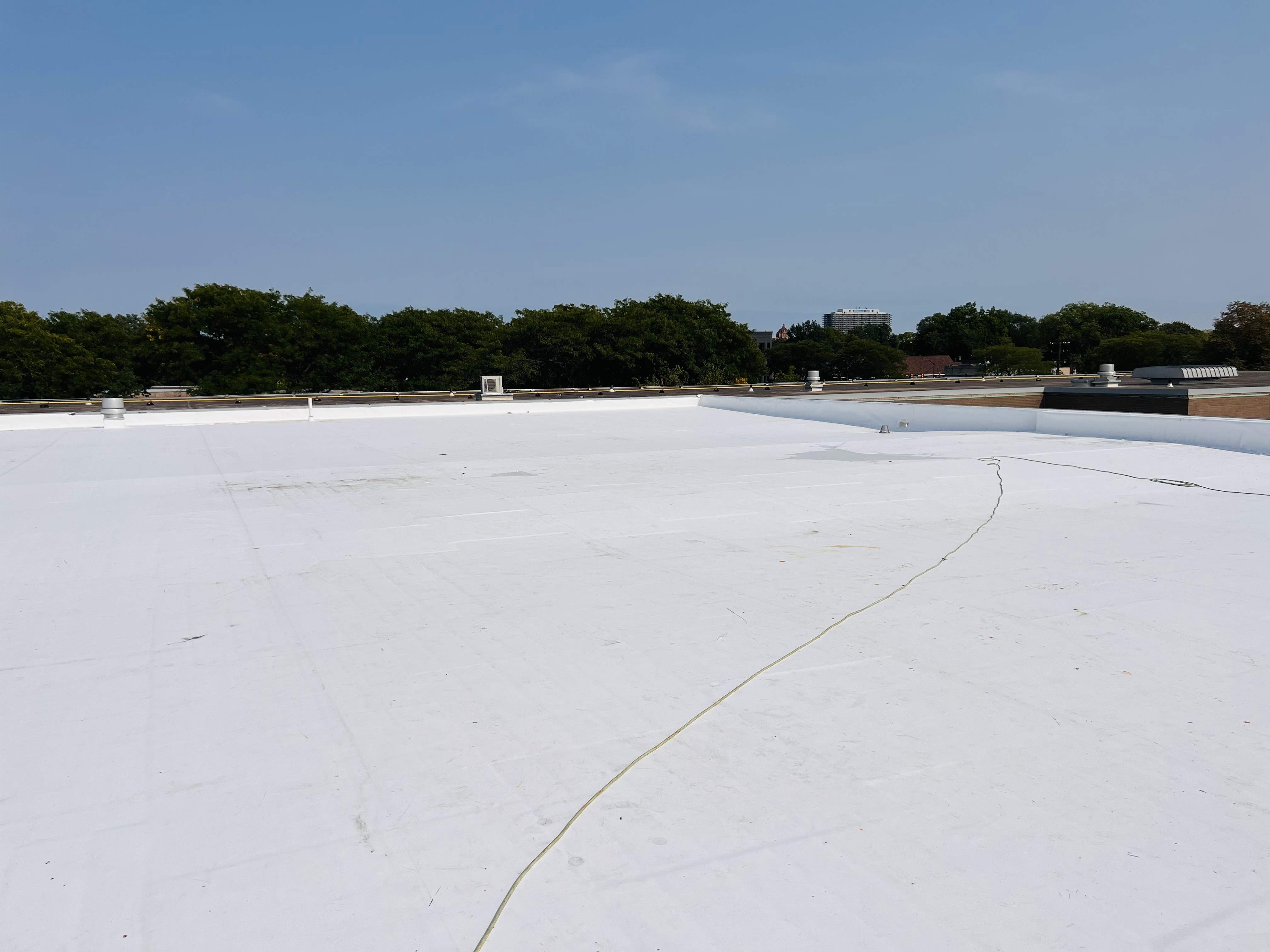

- Material Composition: PVC is a plastic-based roofing membrane made from a polymer blend of vinyl and other materials. It's known for its high resistance to chemicals, fire, and weathering.
- Color: PVC membranes are typically white or light-colored, which gives them excellent reflective properties.
- Advantages:
- Chemical Resistance: PVC is highly resistant to oils, chemicals, and other substances that can damage other roofing materials. This makes it ideal for buildings where chemical exposure is a concern (e.g., factories, restaurants).
- Durability: It has a long lifespan (30+ years) and is resistant to punctures, UV radiation, and weathering.
- Energy Efficiency: The light color and reflective properties of PVC can significantly reduce cooling costs in warm climates.
- Fire Resistance: PVC is naturally fire-resistant, which adds an extra layer of safety to commercial buildings.
- Seam Strength: PVC seams are heat-welded, making them watertight and incredibly strong.
- Disadvantages:
- Cost: PVC is generally the most expensive of the three single-ply roofing options.
- Environmental Concerns: PVC is made from chlorine, and its production and disposal can be harmful to the environment. Some contractors and environmental groups may steer away from it for this reason.
-
Installation Complexity: PVC requires skilled labor for installation, particularly for welding seams, which can make installation more expensive.
